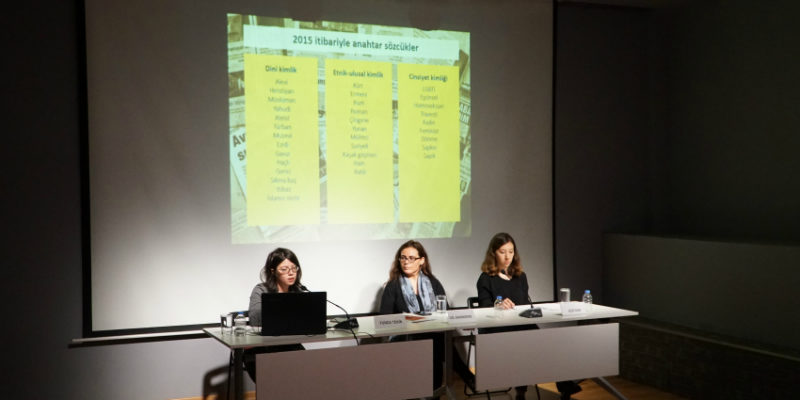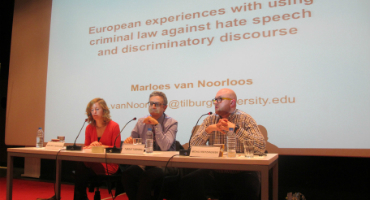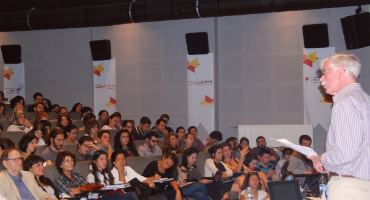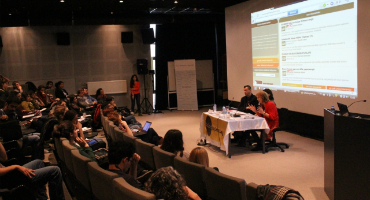Media Watch on Hate Speech Project’s findings concerning printed press in Turkey between May-August 2017 and the discriminatory discourse report, 'Giaour' Discourse in Print Media was presented on November 30, 2017 in Havak Hall with a panel discussion moderated by İdil Engindeniz.
The panel opened with Galatasaray University Faculty Member and the supervisor of Media Watch on Hate Speech reports İdil Engindeniz’s presentation about media, hate speech and discriminatory language in relation to the project. Emphasizing that hate speech has various causes and symptoms, she pointed out the misuse of the phrase “lgbti+”. Giving the example of the phrase “lgbti’li” in Turkish newspapers remarked that such usage covers and disregards sexual identities and orientations that the phrase signifies. Noting that the sentimental language used in the news incite discrimination and prejudice, stated that hate speech is not an emotion, but a part of a structural problem and that we fight, not against a few newspapers, but against a system when we fight against hate speech.
After İdil Engindeniz, Research Coordinator Funda Tekin presented the findings of Media Watch on Hate Speech project between May-August 2017. Emphasizing that hate speech cannot be considered to be independent from political context of the country and world, gave examples from the escalating hate speech directed against Syrian refugees. Tekin also draw attention to the relation between hate speech targeted at Jews and the escalating Israel-Palestine conflicts.
Lastly, Project Researcher Ezgi Kan, shared the findings of the report 'Giaour' Discourse in Print Media covering the period between November 2016- April 2017. Kan pointed out how the word ‘giaour’ is used, which has various historical, sociological and linguistic connotations, in a context within which non-Muslim identities are associated with mercilessness, cruelty and enmity. Stating that the frequency of the use of the word is directly related with the political agenda of the monitored period, presented examples from three main categories in which the word has been analyzed: construction of context through religious references and historical enmity, use of the word as a propaganda tool, criticisms against the giaour discourse.
The panel ended with a Q&A session in which the possibilities and the practical ways of creating “a new language” were discussed with the participation of the audience.





